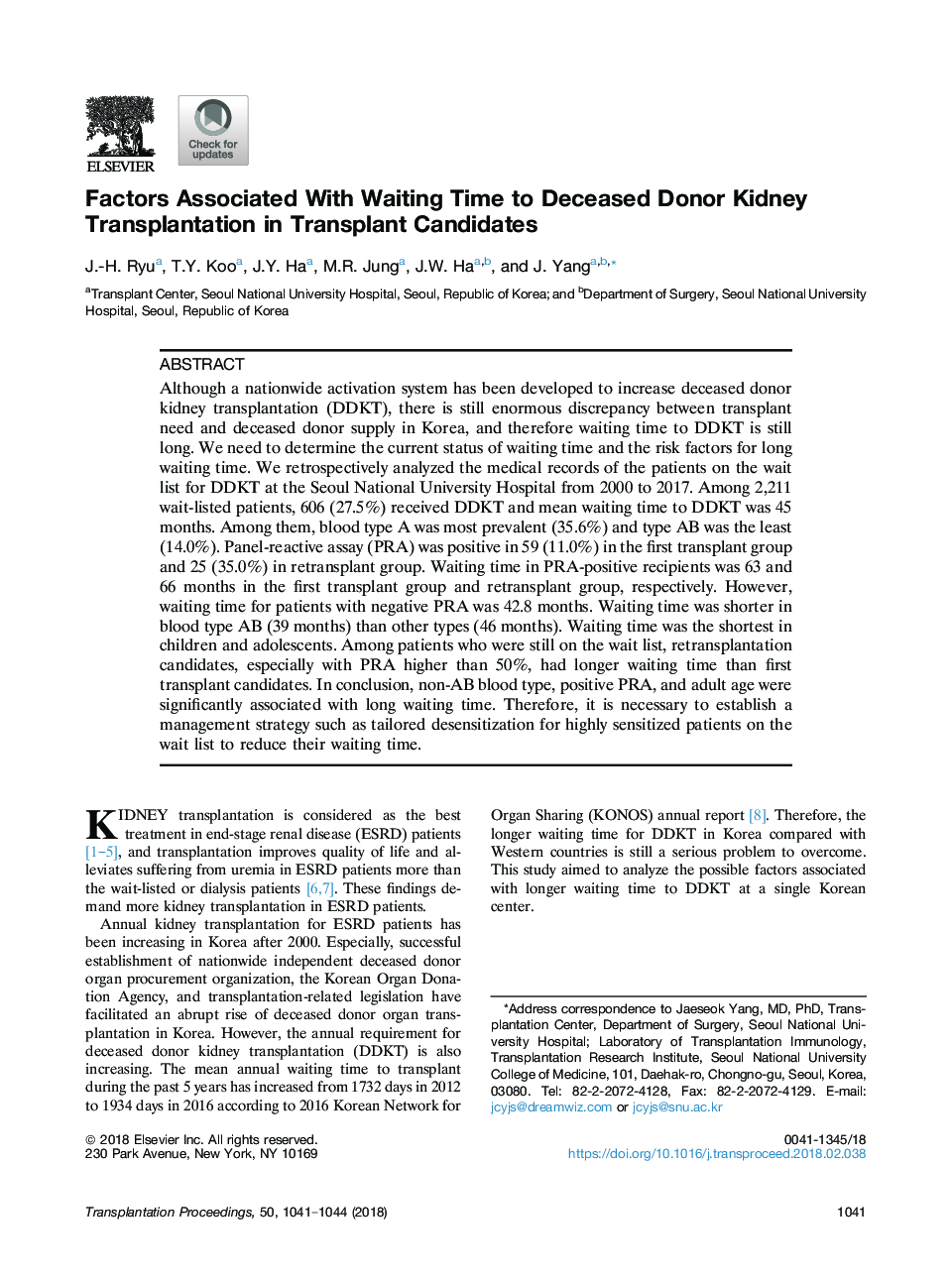| Article ID | Journal | Published Year | Pages | File Type |
|---|---|---|---|---|
| 8827110 | Transplantation Proceedings | 2018 | 4 Pages |
Abstract
Although a nationwide activation system has been developed to increase deceased donor kidney transplantation (DDKT), there is still enormous discrepancy between transplant need and deceased donor supply in Korea, and therefore waiting time to DDKT is still long. We need to determine the current status of waiting time and the risk factors for long waiting time. We retrospectively analyzed the medical records of the patients on the wait list for DDKT at the Seoul National University Hospital from 2000 to 2017. Among 2,211 wait-listed patients, 606 (27.5%) received DDKT and mean waiting time to DDKT was 45 months. Among them, blood type A was most prevalent (35.6%) and type AB was the least (14.0%). Panel-reactive assay (PRA) was positive in 59 (11.0%) in the first transplant group and 25 (35.0%) in retransplant group. Waiting time in PRA-positive recipients was 63 and 66 months in the first transplant group and retransplant group, respectively. However, waiting time for patients with negative PRA was 42.8 months. Waiting time was shorter in blood type AB (39 months) than other types (46 months). Waiting time was the shortest in children and adolescents. Among patients who were still on the wait list, retransplantation candidates, especially with PRA higher than 50%, had longer waiting time than first transplant candidates. In conclusion, non-AB blood type, positive PRA, and adult age were significantly associated with long waiting time. Therefore, it is necessary to establish a management strategy such as tailored desensitization for highly sensitized patients on the wait list to reduce their waiting time.
Related Topics
Health Sciences
Medicine and Dentistry
Surgery
Authors
J.-H. Ryu, T.Y. Koo, J.Y. Ha, M.R. Jung, J.W. Ha, J. Yang,
